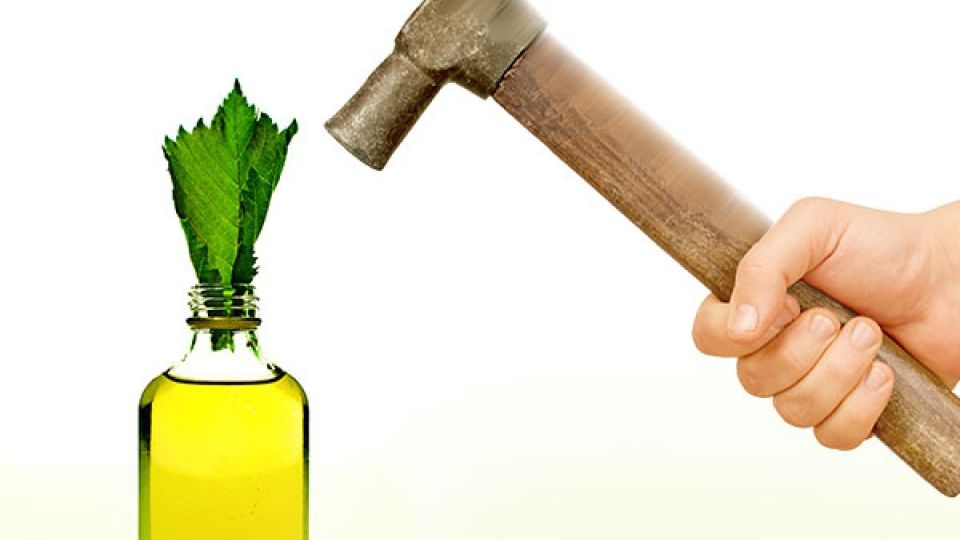
Robert Hahn is no great lover of homeopathy. In fact, as a professor and researcher of anaesthesia and intensive care at the University of Link”oping in his native Sweden, he finds the science behind it improbable. But when he watched an evening of homeopathy-bashing on TV-which included a group of 18-year-olds wearing T-shirts that proclaimed their scepticism-he felt uneasy.
The teenagers, members of the lobbying group Science and Education (the Swedish equivalent of the UK’s Sense About Science), had lined up to declare that homeopathy was, variously, a con trick, unscientific and, of course, a placebo-in other words, any benefits were entirely in the mind of the patient.
This got Hahn to wondering: how could 18-year-olds have the training and experience to read and understand the complicated scientific studies necessary to form these opinions? They couldn’t, of course, so somebody was feeding them a line-but who was it-and, more importantly, was their scepticism justified?
Hahn neither believes nor doesn’t believe in homeopathy. Instead, he’s a pragmatist, a proponent of the new wave of ‘evidence-based’ medical research that started to emerge in the mid-1990s. Out went academic research, which endeavoured to understand the mechanisms behind medicine-‘the why’-to be replaced by a quest for simply ‘what works’.
Even when it intended to do so, academic research was often unable to explain why something was effective in medicine. In his own field of anaesthesia, Hahn says that nobody really understands how nitrous oxide, given to women in labour, actually works-but it does, and that’s what ultimately matters.
Most of the headline-grabbing research into homeopathy is based, if anywhere, in the academic camp: it has sought to understand why homeopathy works, but that question had already been answered by the prevailing paradigms of physics, albeit Newtonian physics. Homeopathy doesn’t work because it can’t work because it offends our view of how the world functions.
With that premise established, any research that actually demonstrates that homeopathy works must be discarded because, by definition, it must be false. In science-speak, this is a type II error. In plain-speak, this means the negative premise-that homeopathy doesn’t work-is false and should be rejected, yet all the evidence that rejects this false premise is ignored.
This raft of bad science was sparked by a 1997 paper that had Klaus Linde as lead author. Linde, a physician at Munich’s Technical University, and his team pooled the data from 89 clinical trials of homeopathy, and found an effect that was up to three times greater than either a placebo or chance: the total positive effect was 2.45 times greater.1
To the sceptics, these findings were beyond unacceptable; they were an outrage. A vocal triumvirate of naysayers-Edzard Ernst, Michel Cucherat and Aijing Shang-began their dismantling of Linde, but to their surprise, they too started to discover that homeopathy worked.
But it couldn’t work, so they had to throw away around 90 per cent of the positive studies until they were left with the tiny minority that supported their prejudice.
For Hahn, Ernst is the most biased science writer he’s ever encountered, while Cucherat is a coward for discarding positive studies that he knew full well demonstrated the effectiveness of homeopathy, and Shang had to constantly play with the data until he got the result he was looking for. Essentially, Shang used a ‘funnel plot’ attack on homeopathy, a form of scatter graph that places different emphases on studies, depending on their size and reliability. But, as Hahn explained, his data were flawed to begin with, and the decks were already stacked because of the researcher’s own bias.2
The sceptics were right to observe that the benefits of homeopathy seemed to diminish with the quality of the trial. On the other hand, in the 10 studies analyzed by Linde that adopted the very best practices, homeopathy was clearly showing significant benefit over placebo.
It was these nay-sayers that had influenced and impressed the teenagers on Hahn’s TV that evening. These sceptics hide their prejudices behind a veil of science, and misuse the objective practices of proper science to ‘prove’ their own prejudices.
And judging from the opinions expressed in the mainstream media, and by politicians and health policy-makers, it’s a strategy that has won the day. Like the teenagers, they’ve fallen for a whole heap of bad science.